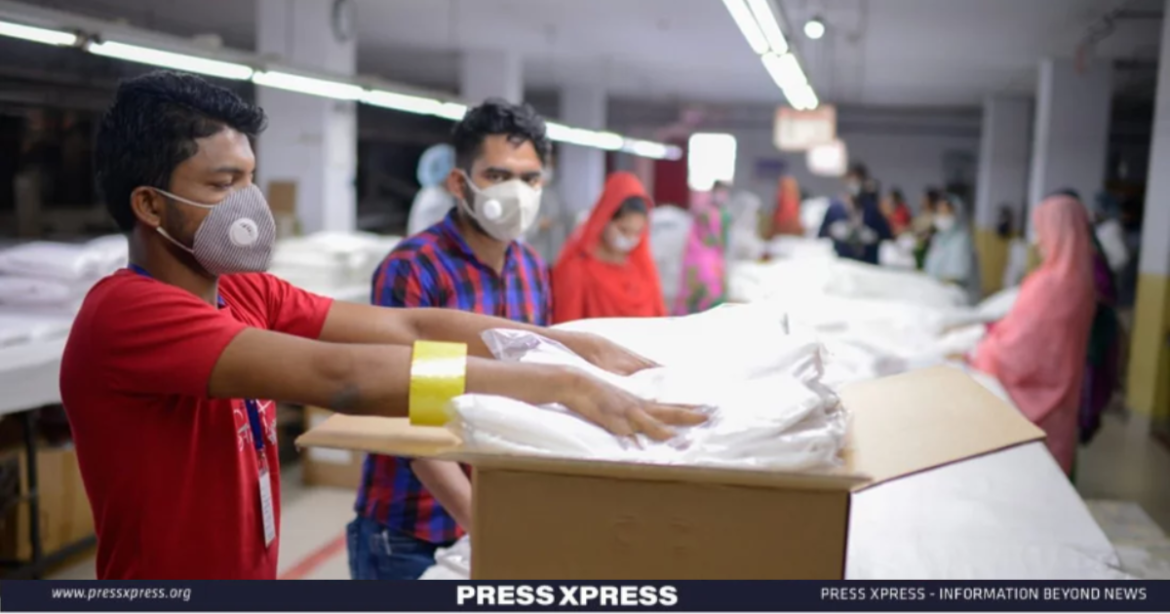Key highlights
- Finance ministry revamps export incentives, changing markets, RMG benefits, and start date
- Revised notification restores Australia, India, Japan as 3% incentive markets
- More apparel gets cash export incentive in revised rules
- 65% Cash Incentives Benefit Garment & Textile Sector
As Bangladesh navigates its path towards graduation from Least Developed Country (LDC) status in 2026, the government’s approach to export policies assumes paramount importance. Balancing the need for fiscal discipline with measures to support export growth remains a priority. The provision of cash incentives for key export items underscores the government’s commitment to sustaining the competitiveness of industries vital to the country’s economic growth trajectory.
You can also read:
In a significant turn of events, the government has revised a circular that reduced export subsidy rates, following negotiations with industry leaders, two weeks after the circular’s initial issuance.

The Ministry of Finance has issued a new notification amending three issues:
- new markets
- five products in the readymade garment sector and
- the effective date
According to the new circular, released on 11th February (2024), the government has reinstated Australia, India, and Japan as new markets eligible for a cash incentive of 3%. In the previous circular dated January 30, these markets were categorized under the traditional market.
Furthermore, the revised circular has changed the effective date to February 1, contrasting with the previous period from January 1 to June 30, as specified in the circular issued on January 30.
RMG Exports Valued at $25.95 Billion Under Five HS Codes
According to data from the BGMEA, the items under five harmonized system (HS) codes of 6105, 6107, 6109, 6110, and 6203, including various apparel products, contributed significantly to Bangladesh’s exports, amounting to $25.95 billion in the last fiscal year. These products accounted for 46.71% of the total export figure and 55.22% of total readymade garment (RMG) exports.
RMG Sector Contribution
- RMG exports valued at $25.95 billion
- Total exports 46.71% of
- Total RMG exports 55.22%
- Incentives benefit garments & textiles 65%
The government’s circular, issued on January 30, outlined a plan to gradually reduce export subsidies for all goods, with approximately 65% of these cash incentives, totaling nearly Tk5,000 crore, primarily benefiting the garments and textiles industry. The withdrawal of the cash incentive sparked discussions and concerns among experts, manufacturers, and stakeholders, particularly regarding the impact on high-value products, market diversification, and global competitiveness. The recent revisions to the circular on export subsidy rates, including the reinstatement of certain markets and products, have been made in response to demands from leaders of the readymade garment sector businesses.
Revised Circular Extends Cash Incentives to Garment Items
Additionally, the revised circular extends cash incentives to certain apparel items that were previously excluded from enjoying such benefits.
These items encompass various garments like knitted or crochet shirts, briefs, t-shirts, vests, jerseys, pullovers, cardigans, suits, and trousers, among others.
The decision to revise the circular comes in the wake of widespread apprehension triggered by the initial subsidy cuts outlined in the January 30 circular.
This comprehensive plan aimed at reducing export subsidies for all goods served as a strategic maneuver toward the nation’s imminent graduation from Least Developed Country (LDC) status by 2026.
The withdrawal of these incentives ignited fervent debates among experts, manufacturers, and stakeholders, who expressed concerns over its potential ramifications on the industry’s competitiveness and bottom line.
Stakeholders highlighted the contradiction between withdrawing incentives for value-added products and the government’s emphasis on fostering value addition.

Impact on Export Figures
On 4th February, representatives from the BGMEA, BTMA, and BKMEA convened a meeting with Finance Minister Abul Hassan Mahmood Ali. During the meeting, they expressed their concerns regarding the reduction in export incentives, citing potential detrimental effects on their competitiveness in the global market. The finance minister responded by assuring them that the government would consider reviewing its decision on cutting export incentives, taking into account its potential impact on the RMG industry.
Furthermore, data from the Bangladesh Bank indicates that the government has been offering cash incentives for 43 export items as part of its efforts to promote their growth and development.

RMG Sector of Bangladesh
Over the past decade, Bangladesh’s Ready-Made Garment (RMG) sector has undergone significant growth, solidifying its stature as a pivotal player in the global textile and apparel arena.
Technological innovations have played a crucial role in enhancing efficiency and productivity within the RMG industry. Automation and digitization have streamlined production processes, resulting in reduced lead times and bolstering the competitiveness of Bangladeshi garments on the global stage. Moreover, a heightened focus on sustainability and ethical practices has positioned Bangladesh as a responsible stakeholder in the industry, catering to the rising demand for eco-friendly and socially conscious products.
In 2023, Bangladesh’s RMG sector encountered a blend of challenges and accomplishments. Despite labor issues, a global economic slowdown, and domestic constraints like energy shortages, the sector sustained growth amidst turbulent economic conditions worldwide.
While challenges such as the Russia-Ukraine conflict and rising interest rates impacted major export destinations, leading to a decline in orders, Bangladesh persevered, maintaining its status as a leading apparel exporter. The sector’s contribution to the country’s total export earnings remained significant, reaching $42.83 billion in January-November 2023, marking a 4.35% growth.
In essence, Bangladesh’s RMG sector continues to navigate through complexities with resilience, highlighting its pivotal role in the global apparel industry and its unwavering commitment to sustainable growth and innovation.


